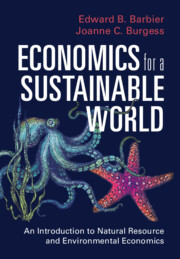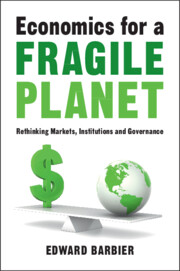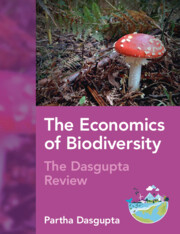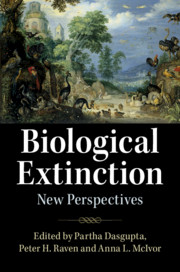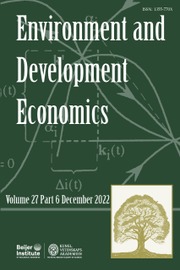Economics for a Sustainable World
Written for undergraduate students with little or no exposure to economics, this introductory textbook offers a new perspective on environmental economics for the 21st century. It explains how economics for a sustainable world requires a new approach: accepting that the economy is intrinsically dependent on nature. Drawing on up-to-date case studies from around the globe, the book examines how economic concepts and techniques can apply to a wide range of environmental challenges while ensuring that poor and vulnerable members of society are included in progress toward sustainable development. The book also addresses current environmental policy options and innovations at the local, regional, and international levels. Chapters cover key topics such as climate change, pollution, energy, minerals, forests, land use, oceans, biodiversity, and water scarcity. Included in the book are the following pedagogical features: learning objectives, boxed examples, discussion questions, lists of further resources, and a glossary.
- Builds a core understanding of key economic concepts and techniques before applying these to specific environmental problems, making this an ideal textbook for students with little to no economics background
- Addresses current environmental policy solutions and innovations, providing students with a solid understanding of how natural resource and environmental economics affects their lives and careers
- Takes a global focus with case studies and examples from across the world, making sure students have a contemporary view of the challenges posed by environmental risks and ecological scarcities
- Carefully designed and organized so instructors can select which chapters to cover depending on the focus of their course and their students' prior knowledge of economics
Reviews & endorsements
‘This is an outstanding overview of an outstandingly important but difficult subject. The authors, world experts in the field, have provided a lucid analysis, with no corners cut. It cannot be recommended too highly.’ Partha Dasgupta, St John’s College, Cambridge
‘This is the book that so many students have been waiting for, be they non-economists wanting to decode the mysteries of cost–benefit analysis, or economists needing affirmation that their subject is key to the real-world challenges of the twenty-first century. For the former group, economic concepts are provided with remarkable clarity. For the latter group, the range of issues presented – including land, sea, energy, water, biodiversity, and pollution – will reassure trainee economists that they chose their subject wisely. Economics alone will not save the world – but it can provide the clarity of thinking necessary to unite the multiple understandings needed to deliver a sustainable future. This remarkable text provides a major step forward in training the clear thinkers needed for that future.’ Ian Bateman, University of Exeter
‘This valuable new textbook will help a range of readers to better understand the meaning and causes of the various environmental challenges which plague our planet. The book includes an engaging and often sobering array of case studies and discussion questions to introduce students to the scale of the challenges of sustainable development ahead. Barbier and Burgess, leaders in the field, write in an impressively clear and concise manner, offering a powerful case for a new economic discourse on environmental issues.’ Cameron Hepburn, University of Oxford
Product details
July 2025Adobe eBook Reader
9781108968164
0 pages
This ISBN is for an eBook version which is distributed on our behalf by a third party.
Table of Contents
- Preface
- Part I. Introduction and Key Concepts:
- 1. Economics and the environment
- 2. Sustainable economic development
- Part II. Economic Tools and Techniques:
- 3. Demand, supply, and efficient allocation
- 4. Market and policy failures
- 5. Economic values and valuation methods
- 6. Cost benefit analysis
- 7. Policy options
- Part III. Application to Environmental Sustainability:
- 8. Land use and agriculture
- 9. Water scarcity
- 10. Minerals and energy
- 11. Oceans and marine resources
- 12. Forests and biodiversity
- 13. Local and regional pollution
- 14. Global pollution
- Part IV. Global Sustainability:
- 15. Towards global sustainability
- References
- Glossary.

